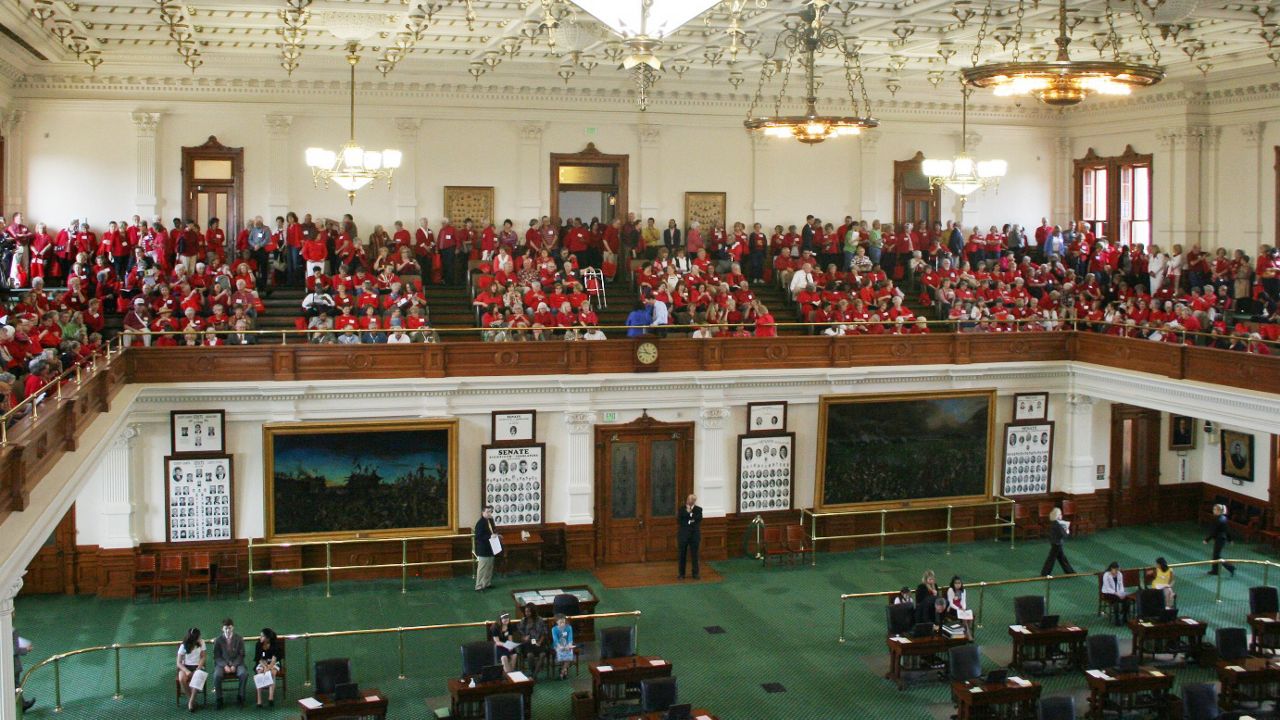AUSTIN, Texas — Both chambers of the Capitol — House and Senate — have chosen to push billions of the current budget surplus into a cost-of-living adjustment for the state’s retired teachers.
Now all the two chambers have to do is compromise on the details.
The Senate passed its version of a pension boost in a unanimous vote on Wednesday afternoon in Senate Bill 10. The measure, which will cost $4.7 billion, was so popular every member of the chamber co-sponsored the bill. This would be the first cost-of-living adjustment, or COLA, since 2013. In the last two sessions, lawmakers have approved an extra 13th check, rather than a permanent increase to the pension annuity.
“As I stand here today, I really am just the spokesperson for the Senate,” said Finance Chair Sen. Joan Huffman, R-Houston, on the Senate floor, adding that every member of the chamber was a joint author. “This is one of those bills where I have the honor to stand up and lay it out for the Senate, but every senator is very involved in this legislation.”
Every member of the chamber being a joint author on a bill is highly unusual. It’s also unusual for the Senate to outspend the House on a budget issue. Of the two chambers, the Senate is typically more conservative.
Both proposals are tiered. On the Senate side, any teacher that is 75 or older will immediately get a $7,500 stipend. In addition, all teachers who retired between 2013 and 2022 will get a 2% cost-of-living adjustment on their pension. Those who retired before 2013 will get a 4% cost-of-living adjustment.
The stipend will cost approximately $1.4 billion. The COLA will cost $3.3 billion. The full cost will come out of the general revenue, with no need to increase employer or employee contributions. The state has 476,000 retired teachers.
“We all understand clearly that this is a significant financial commitment from that state,” Huffman said. “Many TRS retirees have been struggling for so long, so we needed to do this.”
That means about a third of the available budget surplus revenue is being committed to the retired teacher COLA in the Senate budget. About two-thirds will go to property tax relief.
The retirement age for teachers is based on the Rule of 80. Teachers are eligible to retire at 50 or older once they have reached 30 years of teaching in Texas. The amount of the pension is based on the average of the three highest-paid years of the teacher’s service. That’s one reason many teachers serve over 30 years in the classroom.
“The average TRS annuitant earns just $2,175 a month, with around 29.7% of retirees receiving less than $1,000 per month,” Huffman said. “Furthermore, approximately 90% of public education employees are not covered by Social Security.”
Only about a dozen school districts, including Austin ISD, pay into the Social Security system. Not only are retired teachers ineligible for Social Security payments, but also federal law says they cannot access the Social Security payments of a spouse once the spouse has died.
Congressman Kevin Brady, in one of his final acts before his retirement, attempted to repeal that provision in a federal law that excluded many Texas teachers, firefighters and police officers from drawing down Social Security.
“I talked to several Congressmen this weekend and said, ‘This has been wrong for a long time. Congress needs to act,’” Lt. Gov. Dan Patrick told the chamber. “If you don’t know this, members, they came within one vote in December of giving teachers Social Security, and the bill died. So we’re close.”
He urged the Senate to make the commitment that Texas lawmakers would lead in the effort to get that provision overturned in federal law. “We’re very serious about that,” Patrick said.
The House proposal for a COLA is built into the supplemental budget bill, House Bill 600. The cost of the proposal, $3.5 billion, would be a combination of surplus and additional contributions. The tiered COLA adjustments in the House bill would be 2%,4% and 6%, with a $5,000 stipend for teachers 70 and older.



